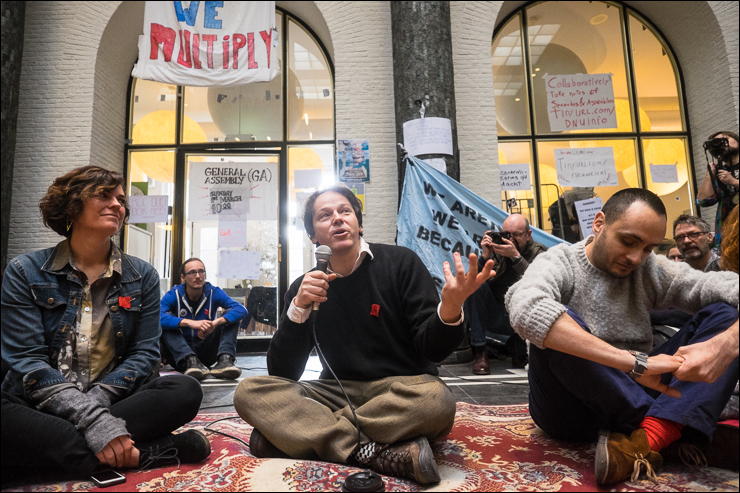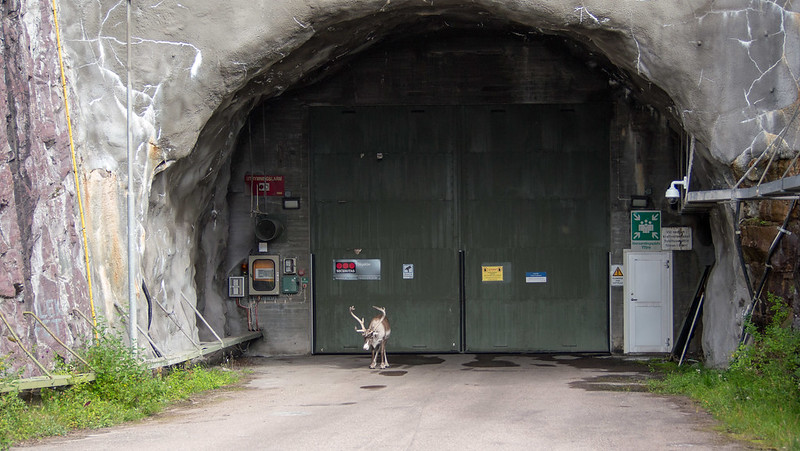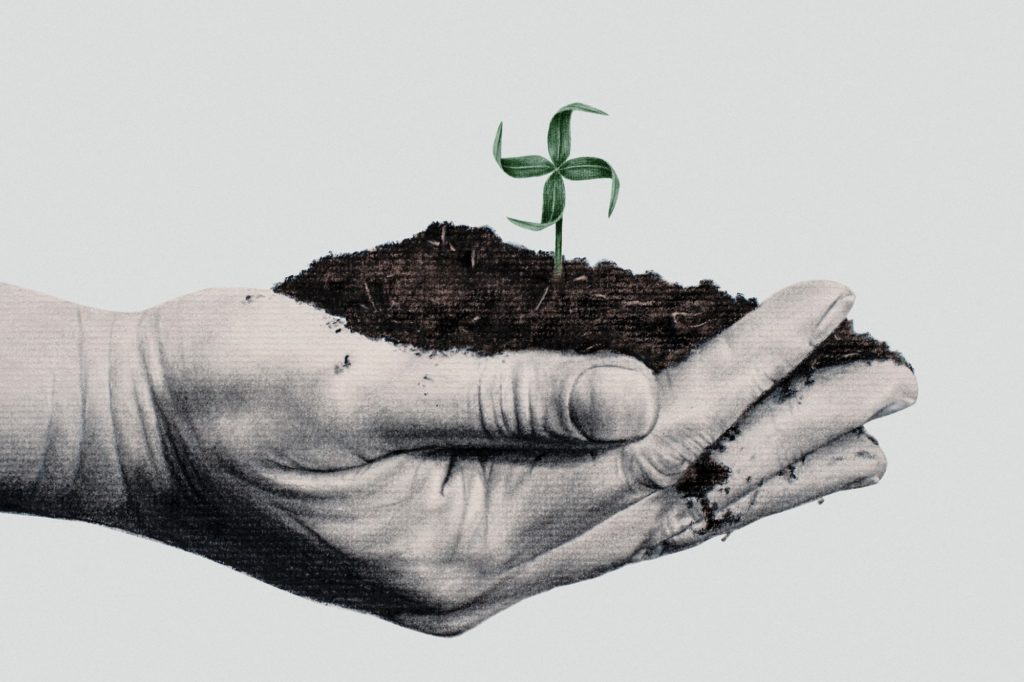
Once a month, we put together a list of stories we’ve been reading: news you might’ve missed or crucial conversations going on around the web. We focus on environmental justice, radical municipalism, new politics, political theory, and resources for action and education.
We try to include articles that have been published recently but will last, that are relatively light and inspiring, and are from corners of the web that don’t always get the light of day. This will also be a space to keep you up to date with news about what’s happening at Uneven Earth.
We’re back! After a much-needed summer break, we’re going to share all noteworthy articles we read during September and October. Themes this time include global land struggles, food justice (including spicy takes on veganism and lab-grown meat), effective communication for environmental justice, degrowth, and re-readings of history, to name a few. Enjoy.
A small note that the articles linked in this newsletter do not represent the views of Uneven Earth. When reading, please keep in mind that we don’t have capacity to do further research on the authors or publishers!
Uneven Earth updates
Radically rethinking urban planning in (and from) the Global South | At a time when the spaces we inhabit determine our chances to survive a deadly virus, it is crucial to challenge canonical urban planning and its deep failures in the Global South
Top 5 articles to read
Labors of love. The work of Ivan Illich can provide an antidote to fears about automation.
‘We’re all fighting the giant’: Gig workers around the world are finally organizing
Agroecology is the solution to world hunger
Ecological multiplicity against capitalist hegemony in India
News you might’ve missed
COP26: Document leak reveals nations lobbying to change key climate report
Today’s youth will face ‘unmatched’ climate extremes compared to older generations
Generational conflict over climate crisis is a myth, UK study finds
Access to a healthy environment declared a human right by UN rights council
Chile is at the dawn of a new political era
Global land struggles
Murders of environment and land defenders hit record high
The industries causing the climate crisis and attacks against defenders
Indigenous people of Brazil fight for their future
Study: Indigenous resistance has staved off 25% of U.S. and Canada’s annual emissions. And Forest people offer the best hope of saving them
Black families passed their homes from one generation to the next. Now they may be lost.
Women on storm-hit Philippine island lead Indigenous effort to restore mangroves
‘We will be homeless’: Lahore farmers accuse ‘mafia’ of land grab for new city
From Stroessner to Syngenta: Paraguay’s soy conflicts
Norway court rules two windfarms harming Sami reindeer herders
Where we’re at: analysis
Think disasters are isolated? Think again, warns the UN
‘Pristine wilderness’ without human presence is a flawed construct, study says
The climate crisis is a colonial crisis
After Covid, Sankara’s lessons on debt are as relevant as ever
The dirty dozen: meet America’s top climate villains
Permian climate bomb. A six-part series that explores the ongoing oil, gas, and petrochemical boom in the Permian Basin and Gulf Coast.
Is nuclear power our best bet against climate change?
An energy transition at whose expense?
Food politics
Food justice files. A New Internationalist series.
The unsung Caribbean roots of the vegan food movement
Red vegans against green peasants
Lab-grown meat is supposed to be inevitable. The science tells a different story. And Giant meat and dairy companies are dominating the plant-based and cellular meat market
African agriculture without African farmers
Can small-scale farming feed the world? A video essay.
Farmers don’t have to contribute to the environmental crisis – we can solve it
Agribusiness and big finance’s dirty alliance is anything but “green”
How food became the perfect beachhead for gentrification
Just think about it…
Forget your carbon footprint. Let’s talk about your climate shadow.
The advertising industry is fuelling climate disaster, and it’s getting away with it
The billionaire space race reflects a colonial mindset that fails to imagine a different world
Why your internet habits are not as clean as you think
Capitalism is making you lonely
Do we live in a selfish world? An experiment on video.
Too much free time isn’t actually bad for you
The dark side of wellness: the overlap between spiritual thinking and far-right conspiracies, and It’s shocking to see so many leftwingers lured to the far right by conspiracy theories
The co-option of mutual aid. “The reality is that mutual aid has its roots in community resistance by Black and Indigenous people.”
The class contradictions of scholar activism
Communicating (environmental) justice
Why we need a new local language of climate change reporting
The seven deadly sins of politi-speak
Imagination, transformed. “As a movement who cares about climate justice and justice overall, we need to better leverage the power of culture because culture is what transforms the imagination—culture shows us what’s possible. And we can do that by including artists and culture makers in our organizing work.”
All Aboriginal art is political: you just need to learn how to read it
Stop trying to find magic words to convince climate opponents
New politics
A decolonial, feminist Global Green New Deal
The ZAD: between utopian radicalism and negotiated pragmatism
An Indigenous community land trust rises, making Land Back a reality
Climate reparations: The case for carbon removal
Degrowth
Who is afraid of degrowth? A Global South economic perspective
Degrowth: why some economists think abandoning growth is the only way to save the planet – podcast
Tailor made degrowth: How a localised clothing economy can contribute to a degrowth future
Futures beyond GDP growth: a report
How shorter workweeks could save Earth
Enough for everyone. “It is possible to satisfy humanity’s universal needs fairly—and keep the world livable.”
Degrowth and revolutionary organizing
Cities and radical municipalism
The inside story of how Berlin took on corporate landlords and won
Is it more sustainable to live off the land or in the city?
A city without cars is already here, and it’s idyllic. Slovenia’s capital Ljubljana has been car-free for over a decade. Is it time to export their model?
Hundreds of kids and parents are biking to school together in Barcelona
Democratic confederalism and movement building in South Africa
A billionaire wants to build a utopia in the US desert. Seems like this could go wrong
The real urban jungle: how ancient societies reimagined what cities could be
The grand crash. Some notes on housing markets in China, and what this tells us about wider economic realities.
History revisited
Early civilizations had it all figured out, The radical promise of human history, and check out a YouTube presentation of David Wengrow and David Graeber’s newly released The Dawn of Everything
Built on the bodies of slaves: how Africa was erased from the history of the modern world
Amitav Ghosh explores the hidden history of climate change
Un-sustaining sustainability? Tracing the colonial origins of India’s rising “sustainable” fashion industry.
How the Dutch are facing up to their colonial past
Sci-fi and utopian imaginings
Imagine 2200: Climate fiction for future ancestors. Short stories.
Why this gives me hope for the future. A video essay on the solarpunk movement. Also: Solarpunk is not about pretty aesthetics, it’s about the end of capitalism
The realism of our times: Kim Stanley Robinson on how science fiction works
Resources
New Socialist issue on Ecologies
Earthcare fieldcast. A new podcast about struggles for ecology and care.
Resources for working with climate emotions
A bullshit job title generator. David Graeber would love this.
Want to receive this as a newsletter in your inbox? Subscribe here.




